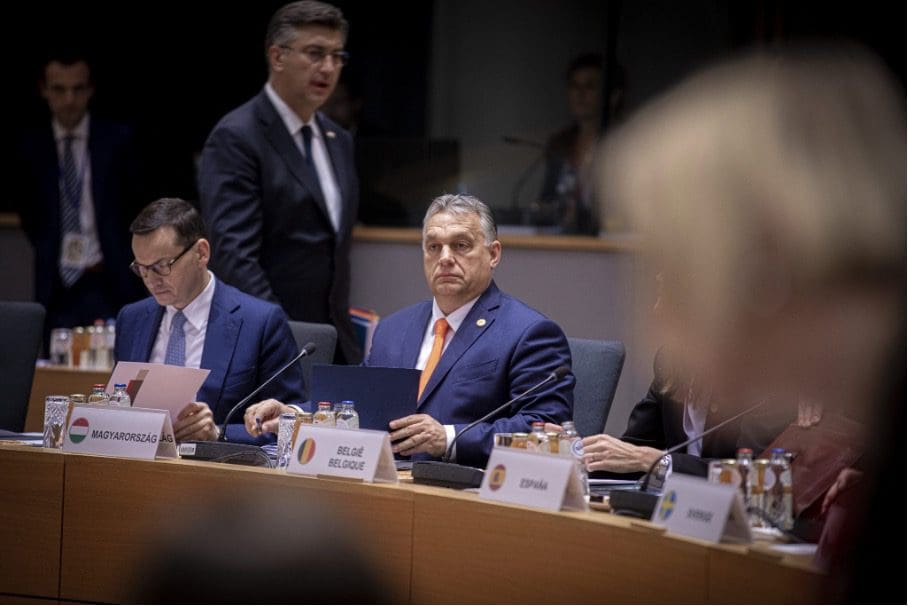The two-day summit of European Union leaders is over, and the bloc was able to come to a particularly hard-won agreement after weeks of initial negotiations regarding the proposed complete ban on Russian oil imports. Cutting the consumption of Russian oil considerably has been one of the main economic objectives of the EU since the war in Ukraine broke out, as only energy sanctions can have significant, short-term effects on the Russian economy, forcing the Kremlin–at least, hopefully– to cease hostilities sooner. Oil is a particularly important asset of Russia, since it is the largest oil exporter in the world, providing around 10% of the global supply – 32% of which has been historically bought by Europe, its number on market. At least so far.

(https://www.bloomberg.com/news/articles/2022-03-10/oil-market-s-big-question-how-much-russian-crude-will-asia-buy)
Good statesmanship lies in the practicalities
Reducing dependence on Russian oil is not only expected to have a favourable effect on the outcome of the Russo-Ukrainian war, but will also contribute to increasing Europe’s strategic sovereignty; the less energy we import from Russia, the less leverage it will hold over us in the future, making us freer to pursue whatever our interests would dictate in different matters as well. While in theory, this sounds like a plan beyond further consideration, good statesmanship lies in the practicalities, and Prime Minister Orbán has showed time after time that he has quite a bit of that.
Once again, the European Commission was being driven by principles rather than the actual facts when it proposed the complete ban on Russian oil, showing the type of ignorance towards the problems of Central and Eastern European member states that we have become so used to by now. Certainly, Hungary has no problem with the idea of punishing Russia, it was only the ‘right now’ part that bothered us. If Western European countries have the resources and means to immediately and entirely cut Russian oil from their imports portfolio, all the better; but holding Central Europe to the same, impossible standards can never be acceptable. Especially when these CEE countries import three or four times as much Russian oil (relative to their consumption) as their Western counterparts. No one denies the need for diversification, but we also have to face the fact that it will not happen overnight.

(https://www.bloomberg.com/news/articles/2022-05-15/germany-to-stop-russian-oil-imports-regardless-of-eu-sanctions)
For the past month, the Western officials of the EU have pretended that they do not understand these basic concerns and covertly branded Orbán– the most vocal opponent of a complete oil embargo– the sole obstacle to European unity and peace in Ukraine after Hungary announced that it would veto any decision without sensible compromises. Yet, Hungary held strong in its will to keep energy prices affordable for its citizens, so eventually the EU– to avoid the embarrassment of failing to achieve an agreement altogether– granted the desired exceptions.
A great moment for Hungarian diplomacy
The final embargo deal that has been reached on Tuesday will only ban the import of crude oil via seaborne shipments (which immediately covers around two-thirds of all Russian oil imports to the EU), while the land pipelines can remain operational for an indefinite time – depending on each member state. Individual pledges to cease importing Russian oil altogether (as chosen by Germany and Poland, for instance) are welcomed but not enforced. The agreement does include the eventual closing of the southern route of the Druzhba pipeline as well (which provides oil for Slovakia, Hungary and the Czech Republic), but only “as soon as possible”, without actual deadlines being set. Hungary, moreover, ensured that the final version would have certain emergency provisions in case pipeline shipments are cut off from the other end, making sure the needs of Hungarians are met first, regardless of the geopolitical situation now or in the future. The agreement is still a huge blow to Russia, but also a great moment for Hungarian diplomacy and for others in Central Europe as well.
Despite the speculative commentaries all over the internet about PM Orbán, the Hungarian government’s position is easy to understand: solidarity with Ukraine should not mean sacrificing our own countries and the sanctions only make sense in the long run if they hurt Russia more than they hurt us. Plain and simple; any discussion beyond this is gratuitous at best. So when a Euronews reporter asked Orbán to respond to the claims that he might be a Russian asset, he promptly dismissed the seriousness of the allegations and called them what they are: “Fake news.”








